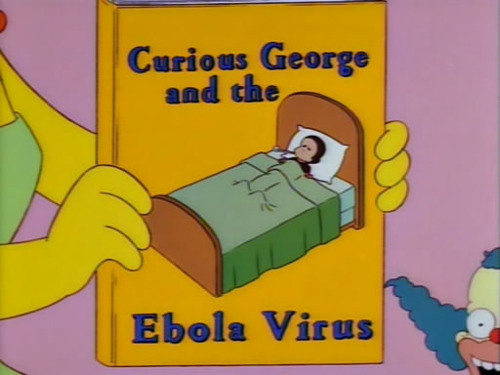Let me just google
that quickly

I
sometimes sit in the doctor’s waiting room staring at the wall of pamphlets
across from me. There are loads of these shiny, folded pamphlets hanging on the
paint-chipped wall in their little metal holders, bursting with information and
resources about Diabetes, Lung Disease, Rheumatoid Arthritis, Glaucoma, IBS…
these pamphlets tell you everything you need to know. What will happen, why it
happened, how to get help, what color your conditions’ ribbon is…

There
is never a pamphlet on any of the rather well-known major diseases because
well, if you get one of these you’re given a club membership complete with an
ID badge, a bouquet of daisies, a basket of well-known books complete with DVD,
two kittens and a hug. Oh, and it is also available in French, Chinese and
Brazilian body language, just in case.
My
disease doesn’t even get a pamphlet.

I
remember the diagnosis stage – being endlessly poked and prodded, giving enough
blood to keep a vampire family of six well fed for a year. Nobody seemed to
have a clue as to what was doing this to me – neurologists parading in and out
of my room giving me the side-eye and repeatedly asking ‘are you sure you’ve not been recently hiking in
the Himalayas? Are you sure you’ve
not maybe sat on a Tibetan yak tick?’ and other bizarre questions of
elimination that make you start to question your own recollection of last week.
After seemingly endless tests we had it narrowed down to three things: X, Y or
‘something you get to name’. Despite my initial excitement at the prospect of
at least making history I quickly recalled that these things don’t tend to work
out so well for the ‘namer’ when they’re a patient, and descended into more
frantic worrying in my hospital bed at night, genuinely concerned that my 99
year old roommate on life support might out-live me.
A
couple of rather exciting surgeries later in which consultants would dart up to
me in the recovery room with fantastic news of ‘it’s not ___!’ so I could share
in their short-lived glee (so, what is
it then?) and we finally had a diagnosis. A surgeon woke me up in the middle of
the night having just received the results of yet another biopsy, this time
confirming my condition. He was too anxious to begin treatment and couldn’t
wait for my medical team in the morning, I needed treatment now – he explained while filing up my IV
line with the biggest needle I’ve ever seen. It’s ***, he confirmed to me.
I’d
never in my life heard of ***. Good grief, was it fatal? How much time did I
have? Were my limbs going to fall off? Would I be blind by morning? Affect an
involuntary Scottish accent? I was elated at this thing having been given a
name but I had so many questions! Had I not been too groggy from the anesthetic
I would have surely grabbed the poor man’s sleeve, clutching to him and
grilling him for hours – but he hadn’t the time and I couldn’t make my arms
work. I asked him if I would be going home soon or should I go ahead and tell
my husband to start dating other people? The surgeon took pity on me and
hastily scribbled down the name of my disease on a post-it note before dashing
back out of the room.
I
clung to that little yellow post-it note with letters I could barely make out.
It was my little yellow life raft. It had a name. A name! What was happening to
me was real! The validation I felt was indescribable, though I still knew no
more about my prognosis than I did ten minutes ago.
And this is how I was discovered by a nurse in the middle of the night wandering down an abandoned hospital hallway with my IV pole and iPhone, googling my condition while standing in the only spot I could find with decent internet reception. In a gown with no back, none the less.
Being
diagnosed with a rare condition is an incredibly lonely and isolating experience.
My GP had only ever heard of it once before, and other than offering moral
support and the odd cup of tea there wasn’t much I could get out of her. My
medical team consisted of more ‘ists’ than I can properly pronounce. Medical
students were called in ‘to see this’. At one point there were 12 doctors in my
room with a whiteboard and I was half expecting Hugh Laurie to waltz in to my
rescue. So now I seek out others with my
same condition, my same severity. And when I find them I cling to them like the
best of friends, my little post-it note raft getting stronger. They understand
what it’s like when nobody has ever heard of your condition. Or if they have
it’s more of a ‘oh hey! My cousin’s friend’s ex-husband’s dog groomer’s stock
broker had that!’ and you’re left feeling like you should congratulate them on
their familiarity with your plight.
They
say it’s best to be unique. I say uniqueness is sometimes quite overrated.
Most
times I just want to be a pamphlet, like everybody else.


No comments:
Post a Comment